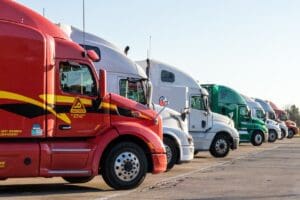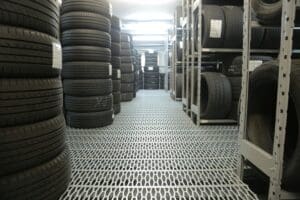How a Truck Driver’s Log Book Can Help Your Truck Accident Claim
A truck log book can be the most crucial evidence in your truck accident claim, often revealing the key factors that led to the collision. Commercial truck accidents are among the most devastating, frequently resulting in severe injuries, significant property damage, and even loss of life. Log books track a truck driver’s hours behind the wheel, rest periods, routes traveled, and vehicle maintenance records—all potential indicators of negligence or regulatory violations that may have contributed to your accident.
When a commercial truck weighing up to 80,000 pounds collides with a passenger vehicle, the consequences are rarely minor. Insurance companies representing trucking operations will immediately begin building their defense, which makes securing all available evidence essential for protecting your right to compensation. Log books often reveal patterns of behavior or specific violations that directly connect to the circumstances of your accident. Whether maintained in traditional paper format or through modern Electronic Logging Devices (ELDs), […]
Read MorePosted in Truck Accidents.
State College Truck Accident Lawyer
If you’ve been injured in a truck accident in State College, Pennsylvania, you need an experienced State College truck accident lawyer who understands the severity of these collisions. At Munley Law, our team brings decades of specialized experience handling commercial vehicle crashes throughout Centre County and the surrounding areas. We recognize the life-changing and severe injuries that often result when passenger vehicles collide with 80,000-pound tractor-trailers.
Truck accidents differ significantly from typical car crashes. They involve federal regulations, industry-specific evidence, multiple insurance companies, and corporate defense teams working against your interests. Our State College truck accident lawyers have the resources, knowledge, and track record to level the playing field against large trucking companies and their insurers.
The aftermath of a truck accident can leave you with mounting medical bills, lost wages, and physical pain while you’re simultaneously pressured to accept inadequate settlement offers. […]
Read MorePosted in Truck Accidents.
What Are the DOT Requirements for Reflective Tape on a Truck?
Have you noticed red and white reflective tape on the trailers of large trucks? Commercial trailers must install reflective tape that conforms to Department of Transportation (DOT) regulations. Trucking companies can guard against rear-end collisions and other accidents by doing so.
Be aware that these requirements may be relevant to you even if you’re not a trucker or otherwise involved in the trucking industry. For example, perhaps you were injured in a truck accident. If the truck didn’t have the proper reflective tape installed, you could potentially highlight this fact when pursuing compensation for medical bills, lost wages, and other such losses. Discuss your case with our truck accident team at Munley Law for more information.
DOT Reflective Tape Regulations

Posted in Truck Accidents.
Tagged Claim Damages Department of Transportation Insurance Negligence Parties
Understanding the Gross Vehicle Weight Rating of a Truck
Understanding the Gross Vehicle Weight Rating (GVWR) of a truck is critical to ensuring that the vehicle operates safely and legally. Vehicle manufacturers determine the GVWR, and this number reflects the maximum weight that the vehicle can safely handle. When a truck is overloaded, and the weight exceeds the GVWR, this puts the truck driver and other drivers on the road in danger and can lead to accidents.
What Is Gross Vehicle Weight Rating (GVWR)?
The Gross Vehicle Weight Rating (GVWR) is set by the vehicle’s manufacturer and indicates the maximum allowable weight capacity for the vehicle. The GVWR considers the weight of the vehicle, its passengers, cargo, and the fuel tank. Although sometimes used interchangeably, the GVWR differs from other weight measurements, such as the Gross Combined Weight Rating (GCWR), which is the maximum total combined weight of a truck and its trailer. […]
Read MorePosted in Truck Accidents.
What Are the Tire Requirements for Commercial Trucks?
Truck tires play a vital role in a commercial vehicle’s safety, directly impacting braking, steering, and driving performance. However, over time, tires can wear down and become hazardous, putting everyone on the road at risk. Commercial truck drivers and owners must comply with strict tire regulations to ensure safety. If you’ve been involved in a truck accident where tire failure was a factor, it’s essential to understand how tire maintenance and safety standards may have been violated.
Federal Commercial Truck Tire Safety Standards
Federal Commercial Truck Tire Safety Standards are in place to prevent accidents caused by tire failures. These regulations include minimum tread depth requirements to ensure proper traction, tire pressure monitoring rules to avoid under-inflation, and specific regulations for steer axle tires to provide stability.
Additionally, retread tires must meet strict safety guidelines to reduce the risk of blowouts. […]
Read MoreDo You Need a CDL to Drive a Box Truck?
One of the most important questions when driving a box truck is whether you need a Commercial Driver’s License (CDL). This 
Understanding these rules is important, as they affect everything from legal compliance to insurance coverage and liability in the event of an accident. Whether you’re using a box truck for local deliveries or long-distance hauls, different classifications apply, and failing to adhere to these requirements may result in serious consequences.
Key differences in box truck operations include licensing requirements, vehicle classifications, and the consequences of driving without the proper CDL. Operating a box truck without the correct credentials can result in serious penalties and liabilities.
Commercial Driver’s License Requirements for Box Trucks
Driving a box truck requires a specific set of skills and qualifications, […]
Read MorePosted in Truck Accidents.
What Are Mansfield Bars on a Truck?

While Mansfield bars provide essential protection, they aren’t foolproof. Their effectiveness depends on proper installation and maintenance. Over time, damage, rust, or poor upkeep can compromise their ability to protect motorists. Drivers play an important role in highway safety by reporting trucks with missing or damaged Mansfield bars, as these safety violations not only put lives at risk but can also be factors in accident liability cases.
The American Story Behind Mansfield Bars
The history of these safety devices is rooted in tragedy. […]
Read MorePosted in Truck Accidents.
How Truck Weigh Station Violations Lead to Serious Trucking Accidents
Most of us have seen signs for truck weigh stations on the highway, but we aren’t really aware of what they are and how they affect us. In theory, weigh stations prevent dangerous overloaded commercial vehicles from sharing the highway with other motor vehicles. While a trained eye might be able to guess a truck is overweight by how the driver is maneuvering it and its breaking distance, you can’t know for sure. That is where weigh stations come in.
What Are Truck Weigh Stations and Why Are They Needed?
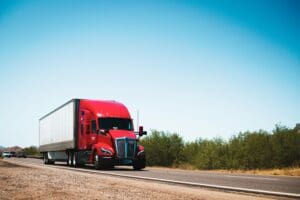
Posted in Truck Accidents.
Tagged Damages Department of Transportation Liability Negligence Pain and Suffering Parties
Understanding Trucking Hazmat Placards
If you have ever driven behind a truck carrying hazardous materials, you have probably wondered what all the colorful stickers mean and what they are for. These stickers are called hazardous material (hazmat) placards. They notify anyone around the hazmat-carrying truck of the dangers of its contents and guide first responders on how to address the materials in case of an emergency safely. If you have been involved in an accident with a truck carrying hazardous cargo, you need experienced truck attorneys. At Munley Law, our trucking accident attorneys investigate your case and get you the care and compensation you deserve.
Decoding Hazmat Placards: A Visual Guide to Truck Safety
All hazmat placards have six main components, which we will discuss in further detail below:
- Hazard class number
- UN/NA number
- Compatibility group letters
- Colors
- Text
- Graphics
The Nine Hazard Classes
The United States Department of Transportation (DOT) has nine established hazard classes of hazardous materials. […]
Read MorePosted in Truck Accidents.
What Is the No Zone of a Truck?
In the age of Amazon Prime and endless online shopping, more trucks are on our nation’s roads than ever. With more large trucks on the road come more safety concerns, particularly for those in passenger vehicles. In recent years, fatality data from the National Highway Traffic Safety Administration (NHTSA) shows concerning trends in truck-involved accidents, particularly in large truck “no-zone” areas—blind spots.
If you have been in an accident with a truck because you were in one of their blind spots, you still may be entitled to compensation. Contact Munley Law to speak with one of our attorneys today.
Understanding Truck No Zones: The Invisible Danger Zones
The “no zone” of a truck is the area directly around a semi-truck where there are blind spots, meaning the truck driver has no or limited visibility. If any passenger vehicle is in a truck’s no-zones, […]
Read MorePosted in Truck Accidents.
Tagged Distracted Driving Hazard Insurance Liability Loss Pain and Suffering
What Is a Bobtailing Truck?
A bobtail truck is a semi-truck driving without its trailer attached – a sight you may have encountered on highways and roads. While these trucks might appear more manageable and safer without trailers, this configuration introduces unique hazards. Semi-trucks are specifically engineered to haul heavy loads, and when operating without a trailer, their weight distribution and handling characteristics change significantly, creating unexpected dangers. The Federal Motor Carrier Safety Administration (FMCSA) reports that bobtail trucks account for approximately 5% of annual truck accidents. Despite their smaller profile, these vehicles can still cause devastating injuries in collisions, which is why accident victims often require the expertise of a truck accident law expert.
If you have been injured by a bobtailing truck, you need a skilled truck accident lawyer.
Bobtail Trucks in Commercial Transportation
The term bobtail truck refers to a truck, […]
Read MorePosted in Truck Accidents.
Truck Accident Statistics You Need to Know
Since they’re large and often pack a lot of weight, truck crashes can be especially serious and result in devastating injuries. Some of the factors that contribute to truck accidents include:
- Poor truck braking capability results in taking 20-40% longer to stop and even more on wet or slippery roads
- Truck driver fatigue
- Weight of the trucks
In today’s consumer-driven market, manufacturers and businesses are under increased pressure to reduce delivery times. For this, the trucking industry has cemented itself as the most reliable delivery method of goods across the United States. With an estimated worth of nearly $800 billion, trucking is responsible for most overland freight in the U.S.
In this article, our truck accident lawyer provides an overview of the most important truck accident statistics in 2024.
Truck Accidents Cause Roughly 130,000 Injuries Each Year
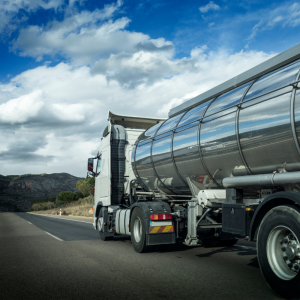
Posted in Truck Accidents.
Florida Truck Accident Lawyers
Florida’s truck route network supports a steady flow of goods along I-95, I-75, I-4, and I-10, but with so many commercial vehicles on the road, serious crashes are bound to happen. If you were injured in a collision with a delivery truck, freight carrier, or long-haul rig, your Florida truck accident lawyer with Munley Law is ready to help. With over 50 million dollars in damages recovered and decades of success, our top rated truck accident lawyers know how to hold trucking companies accountable when their carelessness puts lives at risk.
Florida Truck Accident Attorneys with Proven Results
When you are hurt in a serious crash with a commercial vehicle, experience matters. You need a team that knows Florida law, understands trucking regulations, and can build a case that gets results. Our Florida truck accident attorneys are trusted by injured drivers and families across the state because we have done it before, […]
Read MorePosted in Truck Accidents.
Tagged Appeal Claim Contingency Fee Damages Distracted Driving Economic Damages Expert Witness Fault Insurance Judgment Liability Loss Negligence Non-Economic Damages Out-of-Pocket Expenses Pain and Suffering Parties Personal Injury Protection Proceeding Quality of Life Statute of Limitations
California Truck Accident Lawyer
The trucking industry plays a critical role in California’s economy, with countless commercial vehicles delivering goods across highways like I-5, I-10, and I-80 every day. Unfortunately, the size and weight of these trucks make collisions especially dangerous when something goes wrong. With more than 65 years of combined trial experience, a California truck accident lawyer with Munley Law is here to help you understand your rights and fight for the compensation you deserve. If you were injured in a truck accident, reach out to the nation’s top-rated truck accident lawyers today to discuss your next steps with a trusted legal advocate.
Why Munley Law Is the Truck Accident Law Firm You Can Trust
When you’re dealing with the chaos of a serious truck crash, you deserve to feel confident in the team standing beside you. Our California truck accident attorneys bring nationally recognized credentials, […]
Read MoreWhat Percentage of Work Zone Related Accidents Involve Large Trucks?
When you drive by a work zone on a main road or highway, you’ll likely see several large trucks on your route: dump trucks, garbage 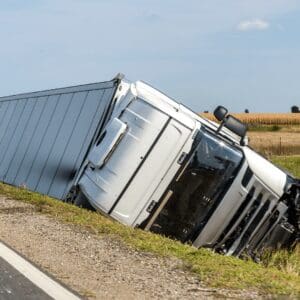
We’re going to talk about the statistics on large trucks, work zone accidents, fatal crashes, how to avoid an accident, and what to do if you’ve been in an accident with a large commercial truck in a work zone.
If you have more questions, the Munley Law truck accident lawyers are standing by. We offer a free consultation where we will discuss your story, offer expert legal advice, […]
Read MoreOklahoma Truck Accident Lawyer
If your life has been altered by a collision involving a truck, turn to Munley Law’s Oklahoma truck accident lawyers and face the future with confidence. For almost seven decades, we’ve helped victims find justice and claim compensation so that they can focus on recovering. With $26 million, $20 million, and $11 million settlements, along with other multi-million-dollar settlements and verdicts under our belt, we’ve helped clients recover more than $1 billion in damages over the years.
Our firm has been awarded by Best Law Firms, while our truck crash attorneys have received numerous awards in recognition of their expertise. They’ve been named to various Top 10 and Top 100 lists by the likes of Best Lawyers, Lawdragon, Super Lawyers, and the National Trial Lawyers Association. In addition, three of our lawyers are board-certified in truck accident law by the National Board of Trial Advocacy.
Let the nation’s top-rated Oklahoma truck accident lawyers help you protect your right to recovery. […]
Read MoreWhy Should You Always Keep Your Distance From a Large Truck?
You should maintain a safe distance from large trucks because their significant blind spots make it difficult for drivers to see nearby vehicles, especially directly behind or beside the truck. Trucks may need to make wide turns, so staying back reduces your risk of collision if the truck brakes suddenly or maneuvers. Additionally, trucks require much more stopping distance than regular passenger vehicles. If the truck comes to a sudden halt and you’re driving too closely, your car may run into the back of the truck, which can have devastating results for you and your passengers.
Motor vehicle crashes can happen any time, anywhere and sometimes, they are unavoidable. However, there are simple safety tips drivers 
Posted in Truck Accidents.
Are Highways Safer Than Regular Roads?

If you have any more questions regarding highway safety, or if you have been involved in a highway accident, call the Munley Law personal injury lawyers. Our accident lawyers offer a free consultation where we will answer your questions and discuss your legal options.
Crash Fatality Statistics: Highways vs. Local and Arterial Roads
According to a 2022 report from the Insurance Institute for Highway Safety (IIHS), crash deaths in rural areas were less likely to occur on rural highways, […]
Read MorePosted in Car Accidents, Truck Accidents.
Tagged Claim Distracted Driving Insurance
How Long Can Truck Drivers Drive Without Resting?

Knowing how unsafe drowsy driving can be, the Federal Motor Carrier Safety Administration has created regulations commercial truck drivers must follow for how many consecutive hours they can be behind the wheel before needing a break.
Hours of Service Rules for Truck Drivers
The Federal Motor Carrier Safety Administration (FMCSA) has created hours of service regulations (HOS) for both property-carrying and passenger-carrying drivers. These rules are meant to protect truck drivers from overwork while also limiting adverse driving conditions for other motor vehicles.
It’s important to understand that drivers do not have set hours like we may have in a 9-to-5 job setting. […]
Read MorePosted in Truck Accidents.
Why Do Semi-Trucks Have Spikes on Their Wheels?
While driving down the highway, you may notice the semi-trucks beside you have what looks like spikes coming off their tire rims. But what purpose do those spike studs hold, and what happens if you get into an accident with a truck driver and those spikes cause damage?
Munley Law explains the purpose of these lug nut covers and your rights in semi-truck accidents.
What Are Wheel Spikes on Semi Trucks?
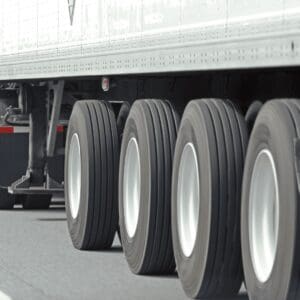
While wheel spikes look intimidating, they are often made of weaker metals like aluminum alloys and even sometimes plastic. So, if your vehicle came into contact with one, the worst that would happen is a few scratches on your car. […]
Read MorePosted in Truck Accidents.
Tagged Appeal Damages FMCSA Hazard Insurance Liability Pain and Suffering

